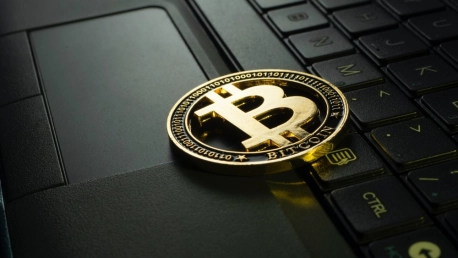Since the turn of the year, almost everyone has been talking about cryptocurrency.
Bitcoin, the largest, most popular cryptocurrency, hit an all-time high of $63,729.5 a coin. Around the same time, Elon Musk announced that Tesla would be allowing customers to pay using Bitcoin.
While countries like China and India have expressed serious concerns about this digital form of currency, they do agree on one thing: the technology on which this currency is based, is here to stay.
That technology is blockchain.
What is Blockchain technology?
To most people, blockchain technology seems complicated, but at its core, the concept is really simple.
A blockchain is actually a database, made up of a list of records (known as blocks). When each block is filled up, it gets chained to the previous one, creating an unalterable record. Any new information that’s subsequently added is put into a new block, which when filled is added to the chain too; in the process creating a permanent timeline of data storage.
A key feature of blockchain is that the data is stored publicly and secured using cryptography. Since it is public, everyone on that network can access these blocks of data. However, once it is recorded, it is impossible to change.
There is no central authority controlling the blockchain, and computers on that network (also called nodes) all have copies of the blockchain. Users say its security is guaranteed, by virtue of it being so transparent, decentralized and ‘set in stone’.
Now, while the most popular application of blockchain is cryptocurrency, here are a few more interesting ways blockchain can be used today.
1. Food Supply Management
Walmart became one of the first companies to introduce blockchain technology to the food supply chain, in an attempt to ensure greater quality control in their supply chain. They created a system to track food, based on a ledger technology. In this case, each node represented a different vendor/supplier that had handled the food on its journey from the source to the store. By doing this, they made it a lot easier and quicker to ascertain which of their suppliers had provided them a tainted batch of produce.
They implemented pilot projects to test its efficacy. One particular project focused on tracing the journey of mangos from farms to their US stores, a process that originally took a week. Thanks to Blockchain, that was dropped down to mere seconds. 2.2 to be precise.
Blockchain offers tremendous benefits to the world of food supply by ensuring a consistent level of food quality is maintained.
Speaking of maintaining quality, it can do the same even with fashion and luxury retail.
2. Fashion and Luxury Retail
Blockchain has the potential to revolutionize the world of luxury retail by labelling items with unique counterfeit-proof tags that guarantee authenticity, by virtue of it being traceable—from the factory it’s made in, to the eventual store it’s sold at.
It can even offer customers the ability to prove, and consequently claim ownership of unique, luxury products on brand websites. This means that, should the customer want to move the product on, they would also have to transfer ownership on the blockchain, besides physically handing the product over. This sort of transparency is unprecedented in the world of luxury and will only serve to improve customer trust scores as well as customer experience, while doing a world of good to the brand’s image.
3. Voting
Despite all the advances in technology, modern voting and the systems supporting it, are still stuck in a different era. To vote, traditionally, people had to leave their homes for polling stations, submit their ID and then make their choice in an electronic voting machine or on a ballot paper. This offered miscreants ample opportunity to manipulate votes, and consequently influence elections.
Blockchain promises to change all that. Users would be able to vote from the comfort of their homes, using their cellphones. After signing in to a secure app and inputting a government-recognized ID, they could then log their vote on a blockchain, after passing it through a proxy to ensure anonymity.
Not only would this help reduce voter fraud, but it would also ensure increased transparency throughout the process (as the blockchain would be public), and significantly cut the cost of holding elections.
Conclusion
Blockchain is set to play a larger part in our lives, as more industries turn to this revolutionary technology to solve long-standing problems. The only question is: how ready are people, governments, and other global institutions for a decentralized technology that offers a level of transparency never seen before? Only time will tell.









